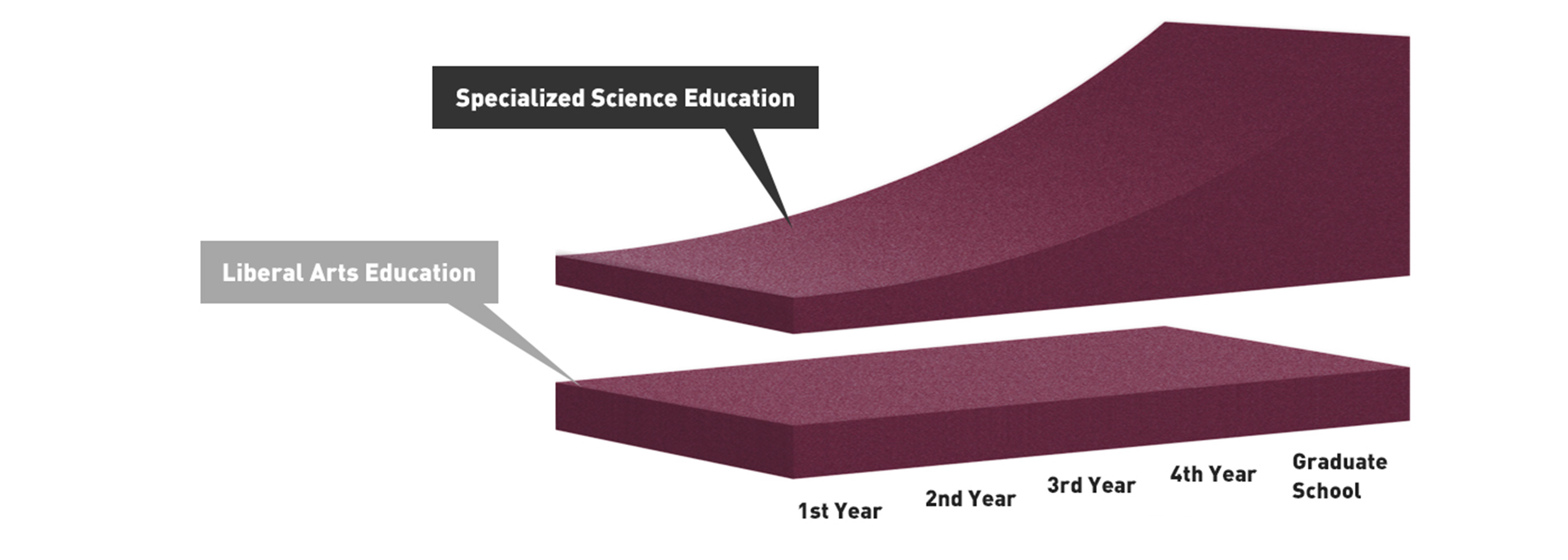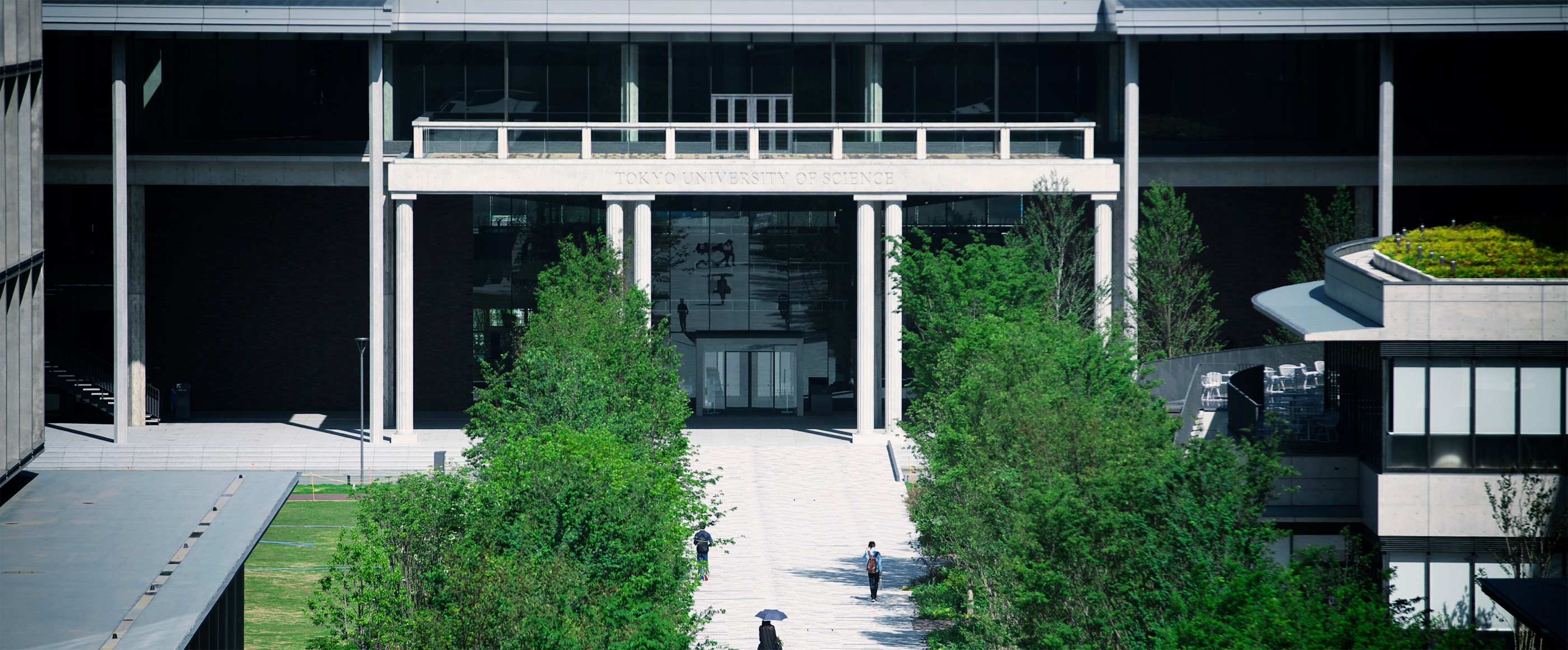For the Tokyo University of Science to build on its tradition of the "Principle of Achieving Excellence" and continue to innovate and develop in response to changes in social conditions, it is carving out a new future of education and research under the banner of "Tokyo University of Science -A university acknowledged by the world-" This is a new image for TUS which has exhaustively examined what constitutes the ideal education and research environment for fostering students who will exhibit leadership on a global stage.
Development of World-Class
Professionals
Skills
High-Quality Specialized Knowledge and a Well-rounded Education
In the fields of science and technology, we equip students with basic skills which will enable them to become world-class professionals.
Skills
Development of International Competitiveness
TUS is engaged in innovative changes towards providing world-class education to meet the needs of globalization and is fostering students capable of playing a role on the world stage.
Skills
Tokyo University of Science's Unique Research Skills
We will globally promote "Only at TUS research" and use our high-quality research environment to develop students with proficient research skills.
Learning Steps
The "skills to be acquired" by students are clearly established for each year. The "layer of learning", which comprises Specialized Science Education and Liberal Arts Education, will grow thicker steadily, and will support you as a firm foundation.

Specialized Science Education
Specialized science education at the Tokyo University of Science aims to "Cultivate the capability of autonomous research and development".
They gradually explore their own methods of resolution, and engage in research
while developing experimental and analytical methods which suit their own style.
Liberal Arts Education
"Liberal Arts Education aims to nurture an open-minded perspective", in cooperation with cutting-edge specialized education. It further aims to train scientists, engineers and teachers who have a sense for correct ethics, a deeply human character, and an international mind.
1st Year
First-Year Education2nd Year
Learning Special Basic Skills3rd Year
Reinforcing Specialist Fields4th Year
Engaging in ResearchResearch Life
The Tokyo University of Science has over 360 research laboratories where a variety of approaches are being undertaken from individual perspectives. It is predominantly from the fourth year when we concentrate on research life and on showing students what kind of places research laboratories are, and how students go about research.

April to
June
Basic knowledge Acquisition in the Research Field / Research and Experiment Design
Students decide the direction of their graduation thesis research topic. They consult staff and set their own topic. There are also students who elect to continue the research that has been undertaken for several years by a particular research laboratory. They conduct their research by first acquiring science foundation knowledge of the topic and making a survey of local and overseas literature, including fields that are peripheral to the topic.
July to
September
Final Determination of Research Topic and Commencement of Experiments
Students learn how to conduct simultaneous research where on the experimental side, they repeat experiments and analyses in accordance with an experiment plan, and on the theory and investigation side, they conduct simulations and field surveys. During this period, students are often seen accompanying their professors and participating in local and international academic conferences in order to broaden their perspectives and experience.
October to
December
Interim Reporting Sessions for Evaluation, Analysis and Discussion of Research
These interim presentations are marked by the frank exchange of opinions and questions about the research from staff, graduate school students and fellow students. Students undertake rigorous preparation for these presentations to ensure that they are not at a loss for answers. The issues raised at these presentations are taken into account as they continue their research towards their final graduation thesis submission.
January to
March
Submission of Graduation Thesis
Graduation theses are usually submitted between January and early February. Students make a final push towards submission. After submission of the thesis, they are able to savor the reward and sense of achievement of their year of effort. Some students who plan to continue with postgraduate studies in the same research laboratory regard this as an interim step towards graduate research.
Graduate
School
A Richly Original Life of Research
The one thing that is most required in postgraduate studies is research originality. Students conduct research and development while acquiring high-level specialist skills and developing their own unique experimental and analytical methods which will enable them to make new propositions to society. In the Graduate Schools of the Tokyo University of Science, research is constantly conducted with the aim of "creating science and technology".

